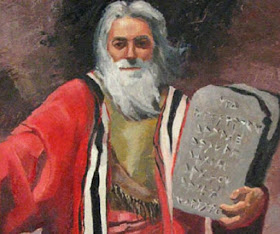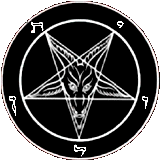The following article was obtained through the website, A Clear Lens and written by Misty Callahan.
Pop quiz: Where is the only place Hanukkah is described in the Bible? Answer: the New Testament! John 10:22-23:
The story of Hanukkah is actually pretty epic. It can be found in the First and Second Maccabees (which are apocryphal books). Josephus also wrote about it in Antiquities and it can be found in the Talmud (tractate Shabbat 21b).
As the One For Israel team state in their piece:
Hanukkah’s Christmas Connection
We’re all familiar with the story about Joseph and Mary having to give birth in the stables because there was no place at the inn. The three wise men came from afar to pay homage to the newborn King of Israel. We marvel at the mercy of God, sending His son to earth in order that He may take on our sins. The perfect, spotless Lamb of God.
We are rightly humbled by the depth of the beauty that is the Christmas Story.
But what if the Maccabees were unsuccessful in their revolt?
The story of Hanukkah took place about 160 years before Jesus’ birth. As such, the question of “could there have been a Christmas without Hanukkah” has popped up from time to time. I think probably not. As Barry Rubin states in his book, “Dedicate and Celebrate: A Messianic Jewish Guide to Hanukkah”:
The Shammash
A typical menorah has seven branches. But a menorah for Hanukkah has nine. The candle that is used to light all the other candles is called the shammash or, the “servant candle” and is set apart from the rest. Many Messianic Jewish families see the shammash as a visual representation of Jesus. As Barry Rubin writes,
1 Corinthians 6:19 says, “Do you not know that your body is a temple of the Holy Spirit who is in you, whom you have received from God? You are not your own;”
Barry Rubin writes, “Hanukkah is closely connected to the Temple. Yeshua’s (Jesus’) followers are called to be the Temple of the spirit of God (Ruach HaKodesh)…Paul’s message…was that believers are to be as holy as the Temple.”
As we reflect on the miracle that is the incarnation: the birth of Jesus this holiday season, let us also remember to rededicate our bodily temples to the true God of Israel. Just as the Maccabees rededicated the Temple to the Lord. Dedicating ourselves to our Savior and His ways will doubtlessly make our holiday season more precious.
While many will doubtlessly make “New Years Resolutions” that will include getting fit or eating right, let us as believers rededicate ourselves to Him. Let’s rededicate ourselves to knowing Him more intimately and being more prepared to give the reasons for our blessed hope!
Merry Christmas and Happy Hanukkah brothers and sisters!
“At that time the Feast of Dedication took place at Jerusalem. It was winter, and Jesus was walking in the temple, in the colonnade of Solomon.”The word for “dedication” in Hebrew is “Hanukkah”. Jesus was at the Temple celebrating Hanukkah. Why should any of this matter to anyone, especially Christians, one may ask? First, it’s always good to study the past in order to know where you’ve come from. But also, both holidays remind us that we should rededicate ourselves to God.
History of Hanukkah
The story of Hanukkah is actually pretty epic. It can be found in the First and Second Maccabees (which are apocryphal books). Josephus also wrote about it in Antiquities and it can be found in the Talmud (tractate Shabbat 21b).
While some modern scholars will no doubt argue that the Maccabean revolt was between “orthodox and reform” factions within the Jewish community, the essential story remains: Hanukkah is about a group of people fighting against religious persecution which came in the form of a man named Antiochus.
“The Greeks had ruled Israel since Alexander the Great had invaded in 329 BC and had become more and more tyrannical and restrictive, banning Torah study, circumcision, and sacrificing anything except pigs on the temple altar. At one point, Jews were forced to eat the flesh of a pig that had been sacrificed in this way. This proved to be a step too far, and a violent rebellion led by the Maccabee family rose up to fight and take back power from the Greeks."“The temple had been defiled with all kinds of Greek statues and vile practices, but it was now time to cleanse and rededicate it. The seven-stick menorah needed ritually pure oil to keep it perpetually burning, but there was only enough to last for one day, and it took seven days to produce this purified oil in accordance with tradition. Amazingly, the story goes, the oil lasted not for one day, but for a full eight days, giving them enough time to produce more oil in the correct manner. The temple was rededicated to the God of Israel, and his order was restored.”
Hanukkah’s Christmas Connection
We’re all familiar with the story about Joseph and Mary having to give birth in the stables because there was no place at the inn. The three wise men came from afar to pay homage to the newborn King of Israel. We marvel at the mercy of God, sending His son to earth in order that He may take on our sins. The perfect, spotless Lamb of God.
We are rightly humbled by the depth of the beauty that is the Christmas Story.
But what if the Maccabees were unsuccessful in their revolt?
The story of Hanukkah took place about 160 years before Jesus’ birth. As such, the question of “could there have been a Christmas without Hanukkah” has popped up from time to time. I think probably not. As Barry Rubin states in his book, “Dedicate and Celebrate: A Messianic Jewish Guide to Hanukkah”:
“God rescued His people and preserved biblical Judaism. Without this, the prophetic fulfillment pertaining to the birth of Messiah could not have happened. Without Jews, Messiah could not have been born through the tribe of Judah, as a descendant of King David.”Moreover, Antiochus had outlawed the study of Torah. Had the study of Torah still been outlawed in the time of Jesus, he never would have been able to stand in the synagogue and read Isaiah 61:1 and proclaim that it had been fulfilled (Luke 4:21).
The Shammash
A typical menorah has seven branches. But a menorah for Hanukkah has nine. The candle that is used to light all the other candles is called the shammash or, the “servant candle” and is set apart from the rest. Many Messianic Jewish families see the shammash as a visual representation of Jesus. As Barry Rubin writes,
“He was ‘set apart’ from the rest of humanity. He was holy, separate, above us all. Yet, he stooped down to give light to humankind, and as the servant, he continually desires to give us light if we will only hold out our wicks to be lit. Yeshua (Jesus) is the light of the world.”Rededication
1 Corinthians 6:19 says, “Do you not know that your body is a temple of the Holy Spirit who is in you, whom you have received from God? You are not your own;”
Barry Rubin writes, “Hanukkah is closely connected to the Temple. Yeshua’s (Jesus’) followers are called to be the Temple of the spirit of God (Ruach HaKodesh)…Paul’s message…was that believers are to be as holy as the Temple.”
As we reflect on the miracle that is the incarnation: the birth of Jesus this holiday season, let us also remember to rededicate our bodily temples to the true God of Israel. Just as the Maccabees rededicated the Temple to the Lord. Dedicating ourselves to our Savior and His ways will doubtlessly make our holiday season more precious.
While many will doubtlessly make “New Years Resolutions” that will include getting fit or eating right, let us as believers rededicate ourselves to Him. Let’s rededicate ourselves to knowing Him more intimately and being more prepared to give the reasons for our blessed hope!
Merry Christmas and Happy Hanukkah brothers and sisters!











 Part of the neo-pagan range of religions
Part of the neo-pagan range of religions






